Even experts have made mistakes. What’s important is what you learn moving forward.
Even the most efficient certified public accountant (CPA) or certified financial planner (CFP) can make mistakes, especially with their own personal finances. That fact should make those of us without advanced accounting degrees feel a little better: even the best of us mess up sometimes.
The important thing is to learn from money mistakes and move forward, ensuring you won’t make that same mistake twice. We asked 15 financial experts to look back and tell us about wrong turns they made with their money in the past, and how they learned from these experiences.
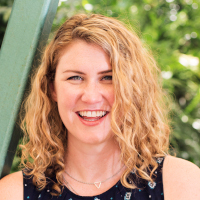
Gen Y Planning
A few years ago, I finally hired a financial planner when I almost missed the tax deadline to max out my Roth IRA. I realized that if I have 100 clients, I’m number 101.
It was time to hire someone who would help hold me accountable. I’m a firm believer that financial planners need financial planning just like therapists need therapy.
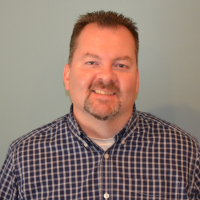
Debt Discipline
My biggest financial mistake was following the herd with my money, and thinking it was okay to carry debt because everyone has it. That way of thinking helped me accumulate $109,000 worth of consumer debt.
Once I realized that I needed to educate myself on personal finance and build a money blueprint that would work for my situation, I was able to repay that debt in 50 months.
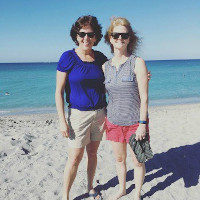
Women Who Money
One of my biggest financial mistakes was not understanding how fees would impact my investment returns! I started contributing early in my career and basically “set it and forget it.”
While I did make the smart decision to invest, I spent 20 years not understanding the fees before I took control of my finances. I’m now helping my kids understand what a difference fees make and helping them get started with low-fee investing!

Doane University
In 1986, I got my first college teaching job in an adjacent county that necessitated a daily 64-mile round-trip commute from my home. I was driving a semi-reliable used Ford LTD with a big, gas-guzzling V-8, so I decided I needed a different car. I didn’t want to buy another used car (my dad had always called used cars somebody’s previous problem – advice which my Ford had proven to be correct on multiple occasions). But I didn’t have much money to spend (i.e., no emergency funds), and brand-new community college instructors were paid very little back then.
The Yugoslavian-built Yugo had just come on the market; and with a $3,990 sticker price, it seemed like a very good deal (since it also had a 12-month warranty plus a small, gas-sipping power-train that was also used in similar-sized, higher-priced Fiats). After the allowance for the trade-in on the LTD, I still needed $3,300 to complete an all-cash deal. Since I had very little money in my checking account, no emergency funds, and didn’t want to go into debt with an auto loan, the only way to get that money was to raid the IRA that I’d opened three years earlier when I’d had a better-paying job.
Given the average rate of return over the ensuing years for the index mutual fund where my IRA was invested, the $3,300 (plus 10% penalty) that I pulled from my IRA would have grown to nearly $60,000 by my normal retirement age. But I didn’t recognize that fact back then!
The front-wheel-drive Yugo was great in the snow and was always pretty reliable — until the timing belt snapped at 86,000 miles. That mishap bent several valves and damaged the engine so badly that it wasn’t worth the estimated cost of the repairs at that point. So, I ended up sinking money into another small car — a used car because it’s all I could afford!
Thus, because I didn’t have any emergency savings to rely on, pulling the money from my IRA to buy a quickly depreciating asset was a dumb move — especially since at tax time, I also had to pay ordinary income taxes on that $3,300 (along with the 10% penalty due to the early withdrawal from my IRA, of course). And I’m also $60,000 poorer in retirement. So, for many reasons, pulling that money from my IRA was a big mistake that I never repeated. What I did back then was dumb, dumb, dumb!

Lyn Alden Investment Strategy
A big mistake I made was not having a roommate after I graduated college. I could have saved $500/month on rent and utilities every year for seven years. If that money were saved and compounded at a 7% rate, it would be worth over $50,000 today. Besides, living alone for long periods of time is bad for mental health. For anyone looking to seriously cut down on debt, I highly recommend getting a roommate and pushing down your housing costs as low as possible.
The rest of my money mistakes all revolve around student loans:
I didn’t aggressively seek out scholarships or shop around for schools when I was planning for my education, which probably cost me ten or twenty thousand dollars worth of extra student loans and interest. As a result, I graduated college with about $50,000 worth of student debt.
Then, once I graduated, I didn’t refinance my high fixed-rate student loans. We have been in a decade-long period of unusually low interest rates, and my private federal loans were taken out earlier with a fixed rate when we had higher interest rates. My private student loans, meanwhile, had a low variable rate. Not shopping around for refinancing options, or ways to consolidate my high fixed-rate student debt, was another potential big win that I left on the table.
Lastly, I was late on one of my student loan payments by accident. It didn’t affect my credit score, but it meant I missed out on a 0.25% interest rate reduction that my lender offered to reliable payers. That doesn’t sound like much, but for tens of thousands of dollars over the course of years to be at a higher interest rate, that was a silly error to make.
I eventually fixed the problem by keeping my expenses low and earning extra money on the side. This dramatically increased my free cash flow and allowed for accelerated loan payoff and building six figures of investment assets within a short few years. Now, my debt is paid off, I have a large investment portfolio, an 800+ credit score, and diverse sources of income.

Michelle is Money Hungry
My biggest money mistake was using financial tools that weren’t right for my personality. Specifically, credit cards. I like to joke that credit cards are my financial heroin. Part of what I’ve struggled with in the past when I had credit cards, was financial discipline and applying that financial discipline towards all aspects of my financial life.
Unfortunately, I had to learn everything the hard way. I’ve spent years relearning my financial habits, did a one-year No Shopping Challenge, and learned how to buy everything that I want with cash and focused financial discipline. I am now on a cash budget and get solicitations for credit cards all the time. I am happy keeping credit cards out of my life, and happily ignore those solicitations every time I get one in the mail.
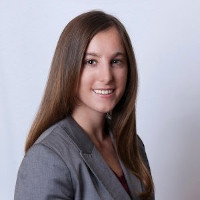
Fiscal Nerd
My financial mistake in the past was spending $10K on a website that I thought would be an asset I would be able to grow and profit from; however, it turned out I was wrong and that the purchase was a huge mistake. The website was not set up for long-term success and its traffic ended up tanking shortly after I bought it, making the purchase a waste.
I learned after making that mistake that it is important to not rush into purchases and to make sure any purchase, especially one you expect to be an asset, has long-term potential before you make it.
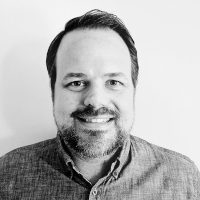
HighYa
My dumbest money mistake was taking out student loans for graduate school. When I graduated with my undergrad degree, I had very little student loan debt and very little debt in general. I went after my graduate degree because I felt like it would give me the best chance of success later in life, but in order to get that degree, I had to take out federal loans.
I have six figures of student loan debt. At this point, it’s manageable because of my income-based repayment plan. I’m also acutely aware of my tax liability when my balance is forgiven in 15 years.
And, as much as I try and stay positive about how my graduate degree helped me professionally and personally, I’m dead set on believing I should have worked full time before and during grad school, to pay for my education out-of-pocket instead of through loans.

JoeHx Blog
The biggest financial mistake I have made in the past was taking out too much in student loans. This was during my undergrad years (Bachelor of Science in Computer Science, Wright State University, 2008-2012). Instead of simply taking out the minimum amount of loans I needed, I opted to take the maximum amount available.
I don’t regret getting my undergrad degree; I have a well-paying day job now. Taking out too much in student loans taught me to be more debt-averse. So, what I’ve learned from my financial mistake is to avoid debt if possible.

LearnBonds
Before stepping out of the corporate world and starting to take in clients as a personal finance coach, I had one huge problem: living on borrowed money. I would use credit cards to buy virtually everything from gas to groceries, bills to rent and everything in between. This obviously meant that I was constantly living beyond my means. However, in between leaving my job as an investment analyst and going private, I made a conscious decision to get my financial world in order.
I cancelled the credit cards with high interest and worthless rewards – I currently have four. I also started comprehensive budgeting that takes all expenses down to the tea break snack into account and embraced the 50-30-20 money rule. More importantly, I started taking stock of my expenditures and started annualizing and constantly analyzing them, and this has helped boost my savings. These ideas worked for me and have formed the cornerstone of my career. And to be honest, they have also worked for most of my clients.
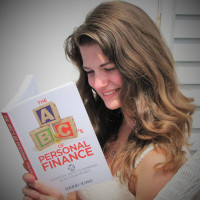
Debbi King
The one that I think is the biggest is not taking advantage of investing. At first, when I was in my 20s, I didn’t choose to invest because I thought I had all the time in the world to do that. Then in my late 20s and early 30s, I didn’t have money to invest. Then in 2003, I was shown something that would change my life: If you invest $100 a month from age 25 to 65 in an average growth stock mutual fund, you will have approximately $1.7 million (based on a 30-year average). If I had known that in my 20s, I would have made it a priority to invest. I invest more than that now, but I am behind the eight-ball, so it will take more investing and a longer time for me to reach the same goal.
In educating others, especially young adults, this is one of the first things I teach them. I show them how compound interest works and what happens the later you start investing. Compound interest is free money, and the biggest wealth-building tool out there. My big mistake was leaving that free money on the table for far too long.

Dollar Sanity
I bought a boat. Maintenance is expensive as hell. No matter how much you’d like to have a boat, drive a BMW or fly with your own small aircraft, don’t buy it.
If you can’t resist, rent it instead.

The Ways to Wealth
My largest money mistake was buying the wrong house, at the wrong time. My wife and I purchased our first house soon after we were married in our mid-20s.
We ended up living in the home for two years. As we’re just starting out in our careers, a lot was changing. Shortly after we purchased the house, my wife had a new job opportunity, which would require us to move. So, we put the house on the market, selling it for a loss.
In hindsight, we should have kept our options open and rented. This would have allowed us more flexibility down the road.
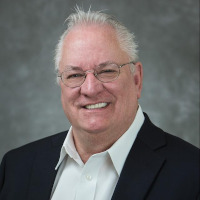
Paradigm Wealth Partners
Most people tend to think that front-loading their 401(k) is ideal, because you take advantage of tax-deferred contributions early in the year, then have a bigger paycheck towards the end of the year. For example, by November 1, you’ve met your yearly max, so for the rest of the calendar year, your biweekly paycheck is slightly larger because you’re no longer contributing to your 401k.
This could be a big investing mistake. If your employer has a matching 401k contribution plan, you’ll potentially miss out on those matching contributions during the part of the year when you yourself aren’t contributing to your 401k.
In late 2015, the company my wife worked for was purchased by another company. Her original employer would allow her to participate and receive the full match of 6%, even if she frontloaded her contributions to the early part of the year. When the merger took place, we left everything as is in the 401(k) and didn’t think too much of it. As of 2016, as we were reviewing the finances in our house, we determined the match amount from the new company was not totalling up the 6% we were accustomed to.
After investigating the Summary Plan Description for the new company 401(k) plan, we learned they required you to be contributing every pay period in order to receive the full match. Since she frontloaded her contribution in 2016, and we did not catch this until late 2016, she missed out on thousands of dollars in matching contributions.
This is not a mistake we will make again, and one that we quickly corrected for 2017. This is now one of the first things I look at when reviewing 401(k) options for clients or people who change jobs. Make sure you read and understand the Summary Plan Description and how the plan works.

Finance Buzz
I didn’t come from money growing up, but in my early 20s I received an unexpected inheritance of $100k+, and I pretty much spent it all. While I did use a portion to pay for college, most of it was spent on stuff like cars and electronics.
My girlfriend at the time (now wife) told me I needed to change my financial habits if we were going to stay together. I took that to heart and became extremely frugal, while also committing to teaching myself the financial literacy that I lacked growing up.
Just over a decade later and I recently achieved leanFIRE, where my passive monthly income exceeds expenses. Aside from being frugal and selling all the things that I purchased years ago, I also geo-hacked after college and lived in lower cost of living countries abroad while earning a decent salary. While travelling, we learned about credit card points and miles, which I’ve used to travel the world over the last 11 years. It’s taken me to 600 cities in 76 countries (and counting), as my wife and I travel 180 days out of every year. We moved to Tulsa, Oklahoma this year and received $10,000 cash for doing so through the Tulsa Remote program, and I’ve taken on many side hustles to diversify my income. We even bought a multi-family investment property with credit card points and miles.
I can’t say I would change my past since it’s led me to where I am today, but it is my goal to spread financial literacy to as many people as possible. My financial mistake can teach others what not to do with their money, and how to change their financial futures.
–Brandon Neth
Have you made some money mistakes? These resources can help you correct your course.
They say hindsight is 2020, so this is the perfect year and perfect time to reflect on your finances and develop better strategies moving forward. These resources can help you get started:
- Learn how to build a budget
- Get out of debt, even if you’re living paycheck to paycheck
- Find solutions to pay off student loan debt
- Understand how to use credit the right way
- Save for retirement, in spite of debt
It’s not too late to fix a debt mistake in your life. Our certified credit counselors are ready to speak to you.